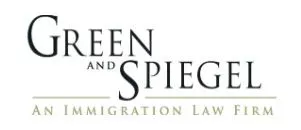Effective July 17, 2017, a new immigration-related option will be available for international entrepreneurs. The Department of Homeland Security has finalized the much-awaited International Entrepreneur Parole Rule, which will grant certain qualifying individuals parole into the United States. Our team previously covered this Rule's proposal last August, as well as submitted our comment in reply to the proposed Rule.
The final version of the Rule includes some significant chances from the proposed version. Below we discuss some of its key requirements and limitations.
General Terms
- Parole generally: USCIS will grant parole into the United States for a maximum aggregate period of five years. This maximum parole term is divided in half, with an initial maximum grant of 30 months followed by a second 30-month grant. Notably, parole is not a lawful nonimmigrant status. Individuals inside the U.S. cannot "change status" to parole, nor can one adjust status and obtain a Green Card within the U.S. following an employment-based petition. Accordingly, foreign travel is required to obtain parole or an employment-based Green Card.
- Designed for entrepreneurs of "startup entities", not mere investors: The applicant must have "a central and active role in the operations" of a U.S. business entity that has been created within five years of an initial parole request. The applicant must be "well positioned, due to his or her knowledge, skills, or experience, to substantially assist the entity with the growth and success of its business." The entity must also "have substantial potential for rapid growth and job creation."
- Possess and maintain significant ownership of the startup entity: At the time of adjudication of the initial filing, an entrepreneur must have at least a 10% equity interest. Further, he or she must maintain at least 5% during the initial parole period. This ownership interest may be reduced further thereafter, provided that at all times there is some ownership interest.
Initial Parole
At the time of the initial filing, the startup entity must have attracted funding. The funding may come from a "Qualified investment" or a "qualified government award or grant."
- Qualified investment: Within 18 months of filing, Entrepreneurs would need to attract bona fide investment from an U.S. individual or U.S.-owned entity, other than from family members and entities controlled by family members. The qualified investment must be at least $250,000 from one or more "qualified investors." Such investors must have within the past five years, 1) made investments in exchange for certain types of business interests of no less than $600,000 and 2) such investments must have, in at least two entities, created five jobs for U.S. workers or generated at least $500,000 in revenue growth with annualized average growth of at least 20 percent. Accordingly, applicants bear the burden of proving the nationality / immigration status of their investors and investment entities, as well as the track record of such past entities' performance.
- Qualified government award or grant: Alternatively, an entrepreneur may qualify if receiving at least $100,000 through one or more qualified government awards or grants. Such awards must be for economic development, R&D, job creation, or a similar grant, made by a U.S. federal, state, or local government entity.
- Alternative Criteria: The Rule does allow some flexibility, as an entrepreneur who has only partially met the funding standards listed above may provide "other reliable and compelling evidence of the startup entity's substantial potential for rapid growth and job creation."
Re-Parole
Prior to expiration of the initial parole period, an entrepreneur may apply for an additional parole period of up to 30 months. In such a filing, the entrepreneur must demonstrate continued ownership of the startup entity. As discussed above, this must be at least 5% ownership prior to filing for re-parole. Additionally, re-parole requires a showing of the following alternatives:
- Additional Funding: In order to be granted another parole period, the startup entity may show it has received $500,000 in qualified investments or government grants/awards during the initial parole.
- Job Creation: An additional parole term will be granted where the startup entity has created five full-time jobs for qualifying employees (U.S. citizens and lawful immigrants) during the initial parole period. Family members and independent contractors are not included in this count.
- Annual Revenues: The startup entity may show $500,000 in annual revenue in the U.S. and average 20% in annual growth during the initial period.
- Alternative Criteria: Similar to initial parole, the applicant may partially meet the above re-parole criteria and provide "other reliable and compelling evidence of the startup entity's substantial potential for rapid growth and job creation."
Limitations
- Material Change: Entrepreneurs are required to notify USCIS of material changes to the startup entity or their candidacy for parole. Such events include criminal charges, convictions, complaints, settlements, judgments, etc. brought by a governmental agency. Similar claims brought by private individuals exceeding 10% of the current assets of the entrepreneur or startup entity must also be reported. Further, liquidations, bankruptcy, the cessation of business, or loss of the entrepreneur's ownership or qualifying role is also considered to be a material change.
- Number of Entrepreneurs: No more than three individuals may receive parole based on the same startup entity.
- No Clear Path to a Green Card: The government has declined to state that obtaining parole and sustaining the startup will in and of itself qualify one for permanent residency. After the maximum five years, an applicant would need to depart the U.S. and obtain another status. However, parole may, in the right cases, dovetail well with an EB-2 National Interest Waiver following the Dhanasar decision.
The new Rule contains additional terms relating to the entrepreneur's family members and detailed procedural requirements. Entrepreneur parole presents a welcome addition to existing U.S. immigration options for entrepreneurs. While far from perfect, we look forward to the rule becoming effective in July. For additional information, contact us today.


